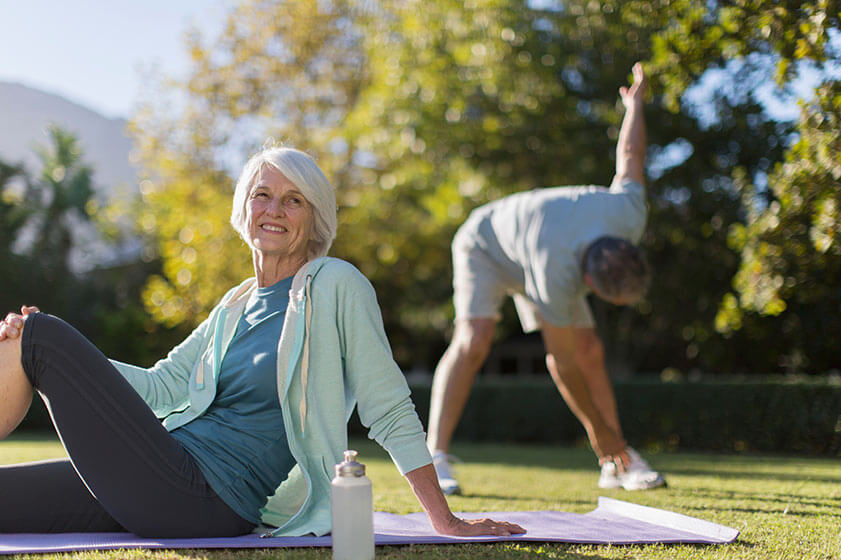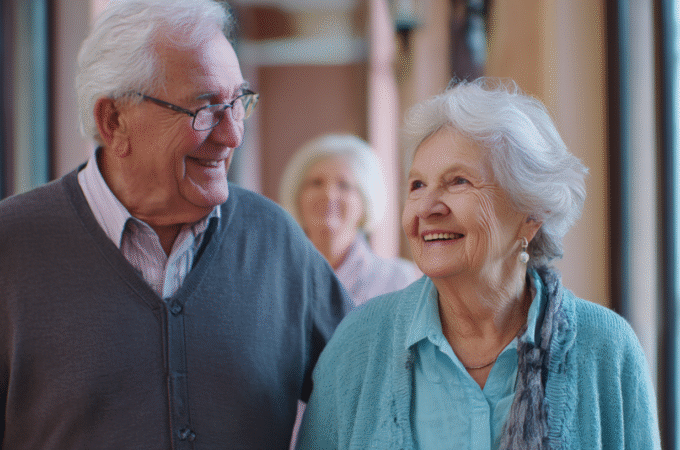
6 Ways Daily Movement Can Improve a Senior’s Well-Being
An active lifestyle benefits your health in all sorts of ways. Not only will exercise help stabilize weight and boost energy levels, but it can also increase longevity and lower the risk of chronic illness for years to come. As you age, movement becomes even more crucial. According to the BioMed Research International Journal, regular exercise is connected to positive physical, mental, and emotional health outcomes in older adults.
Prioritizing daily movement can feel difficult as you age, but making time for it is essential. The more consistent your exercise routine, the easier it will be to maintain physical health as these “golden years” unfold. Here are six reasons movement can enhance your well-being in this next phase of life.
1. Balance and Equilibrium
Falling can cause severe injuries for anyone—even more so if you fall on rough terrain or hit the ground at an unnatural angle. However, the danger and severity of falls can increase with age. Accidents that are minor to a younger person could cause bone fractures or even breaks in older adults. Fortunately, regular exercise will improve your balance and equilibrium, making you less susceptible to falling. To maximize these benefits, prioritize functional full-body movements like walking, stretching, and low-impact resistance training.
2. Motor Skills and Mobility
Sharp motor skills enable you to maintain independence for as long as possible. This includes basic daily tasks like showering, dressing, cooking, and eating. Exercises that promote hand-eye coordination (e.g., tennis and pickleball) will strengthen these motor skills as you age. Physical activities can also increase functional mobility, such as walking unassisted or standing up from a chair. Even the simplest forms of exercise—stretching, for instance—will keep you mobile and protect against conditions like arthritis as you age.

3. Cardiovascular Health
The risk of cardiovascular issues such as heart disease, hypertension, and stroke only increases with age. Several actions, like a nutritious diet, stress management, and heart medications, can strengthen cardiovascular function. In addition, regular movement can also be vital in keeping your heart muscles strong, healthy, and resilient.
4. Emotional and Cognitive Health
Not only does exercise promote physical wellness, but it can also improve mental wellness. Exercise releases endorphins, naturally occurring brain chemicals that promote feelings of satisfaction and contentment. Staying active can improve mood, alleviate stress, and increase cognitive function. Exercise can also help act as a buffer against the onset and development of neurological conditions like Alzheimer’s or dementia.
5. Routine and Consistency
If you are entering retirement, it’s common to feel bored or restless while you adjust to this new lifestyle change. Fortunately, maintaining a consistent exercise schedule will give you a sense of routine and structure to follow. A regular exercise routine can help you feel more productive, which is essential to your mental and emotional wellness during this unique transition period.

6. Lower Risk of Disease
Movement strengthens the immune system to help reduce the risk of chronic health issues and all-cause mortality. That’s because exercise lowers inflammation, protecting you against diabetes, metabolic syndrome, pneumonia, influenza, and other illnesses. Many older adults are immune compromised because of pre-existing health conditions, so you must do what you can to combat this issue through regular exercise.
Daily Movement Is Essential in Your Golden Years
As you can see, maintaining regular exercise or starting new habits is crucial as you enter your golden years. So, find a type of enjoyable movement, commit to making time for it daily, and reap those long-term benefits.




